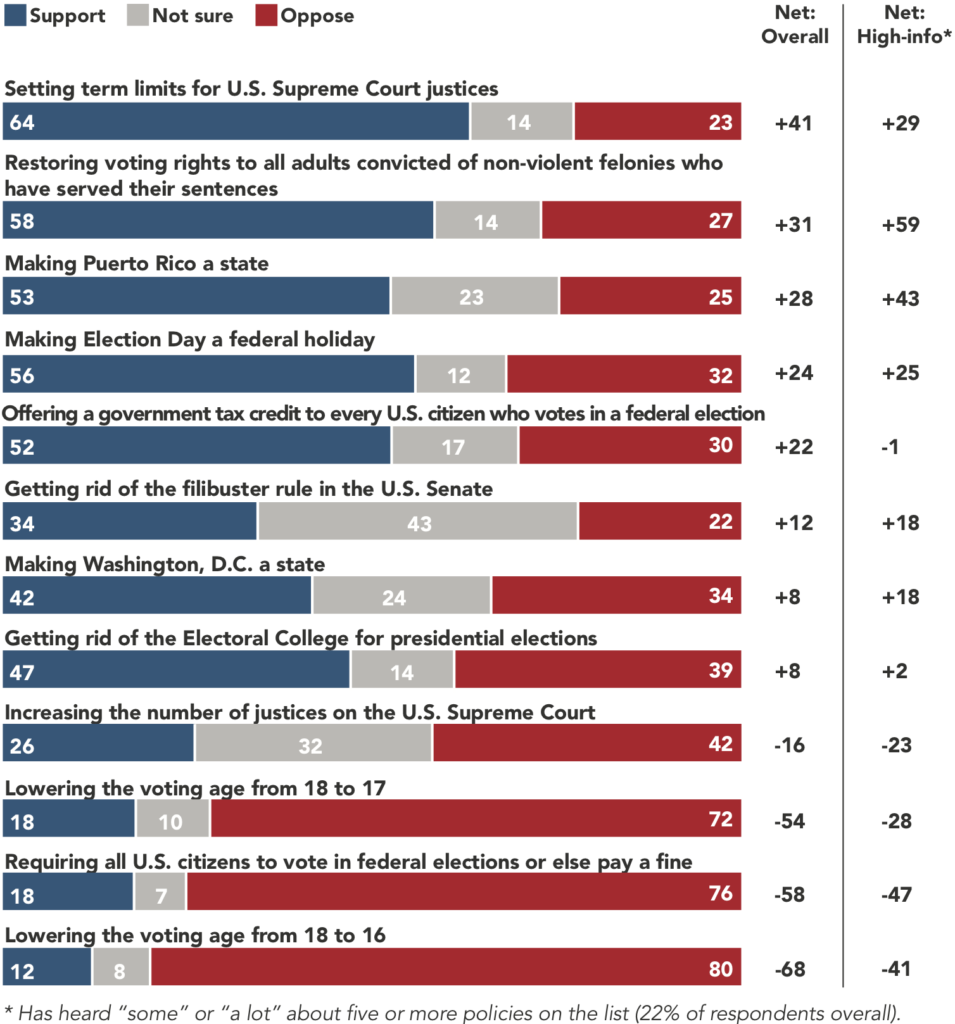Earlier this year, House Democrats recently passed HR1, a sweeping bill to improve both oversight in American government and the way elections are run in the United States. Unfortunately, it was dead-on-arrival in Mitch McConnell’s Senate. There is even more that can be done to reform our political system and Democratic candidates are floating several new proposals. A survey conducted by Navigator Research earlier this month tested how best to talk about those proposals, which have mostly been off the mainstream of political discussion so far.
If these proposals do come up in political discussions, don’t assume folks know what the proposal is. Navigator asked two questions about each policy in the survey: awareness and support. Overall awareness of the policies was low. The most familiar policy is the abolition of the Electoral College for presidential elections, which 55% say they have heard “some” or “a lot” about. Almost half (47%) had also heard about the restoration of voting rights to individuals with past felony convictions. Beyond that, none of the other eight policies are well-known by more than a third of the country (33% for Puerto Rican statehood). Only 22% of respondents had heard a lot or some about five or more policies from the list.

Giving even a small amount of information about these proposals can inform and change voters’ views. For example, talking about D.C. Statehood using the concept “no taxation without representation” changed voters’ minds. Giving too much information — getting into the weeds — can create problems. So, simply informing voters (60% of whom don’t know this) that D.C. residents have representatives in Congress, but those representatives can’t vote, and D.C. residents nonetheless pay full federal taxes was effective. Going into the history of the fight for representation or trying to respond to GOP claims that giving DC residents representation is a “Democratic powergrab” was not effective.
This was even more effective for Puerto Rican statehood. Simply asking if Puerto Rico should be a state with full representation in Congress — i.e., giving some context — significantly increased the positive responses as opposed to just asking “Should Puerto Rico have statehood?”
Bottom line, persuasion is more effective with a small amount of relatively neutral context rather than either length or partisan arguments.
One other tip: Speak in terms of “political” reform rather than “democratic” reform.
Read more: Navigator Research, How to Talk About Political Reform
Share this: